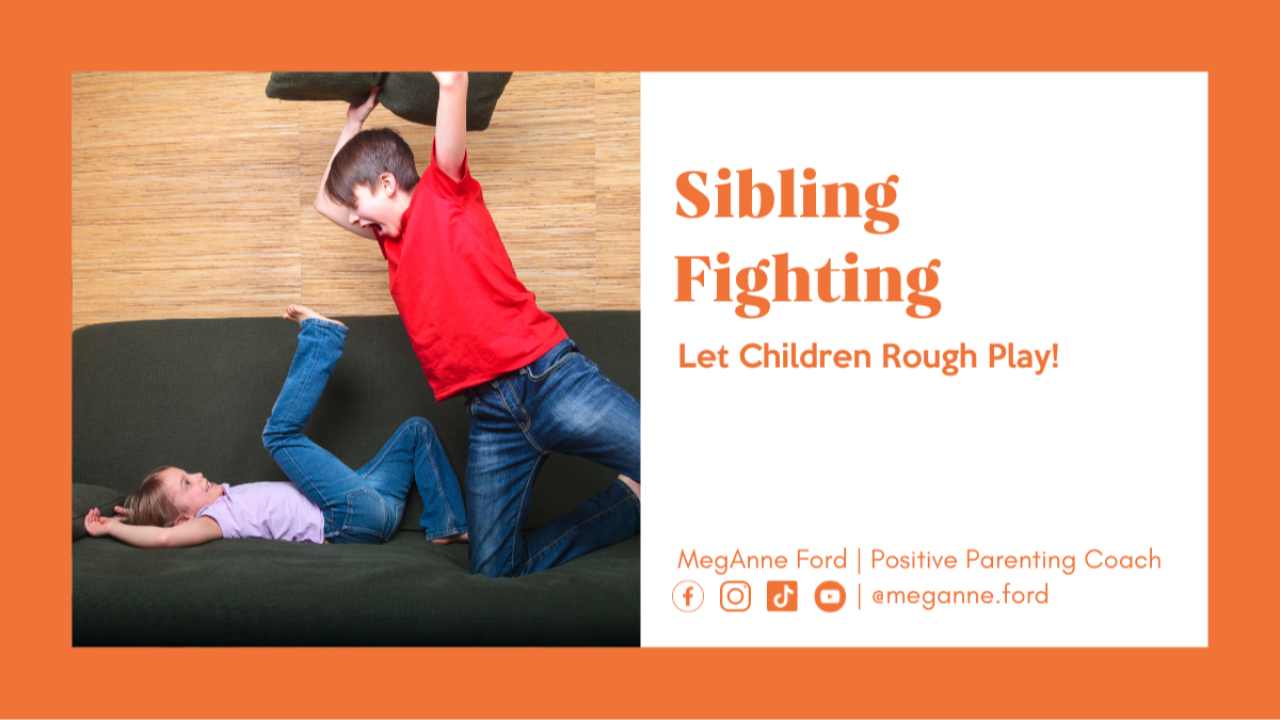
Let Children Rough Play!
Jun 17, 2024
I get it! for some people, it's uncomfortable to watch siblings or children play rough.
I hope to shine some light on this important piece of play and learning, both for boys and girls!
Ever hear yourself say this to your children:
"Hey! Not so rough with your sister!"
"Whoa! No fighting!"
"Stop fighting, now apologize! Say it like you mean it."
Ever witnessed a tumble fest between two children, rolling all around, pinning each other to the ground?
Does your stomach start to churn, and you feel yourself compelled to break it up, probably lecturing about the "right way" to play?
What if I told you that breaking up that tumble session is costing your children precious learning moments?
In the July 2011 edition of Young Children by NAEYC, I found an article that perfectly paints for parents the importance of rough play.
Rather than forbidding rough-and tumble play, which can aid in increasing a child’s social skills, teachers’ and parents’ efforts are better directed toward supporting and supervising this type of play, so that young children’s social skills and friendship-making skills can develop (Schafer & Smith 1996).
Skills like control, strength, consent, and confidence are all developed when playing rough and tumble. These are some of the most sought-after personal traits that parents are asking for.
Yet, they are so quick to squash during the best way for children to discover and learn them. Why are adults so quick to break up sibling fights or rough-and-tumble play? I truly believe it comes from not fully understanding its importance, along with not knowing how to facilitate appropriate limits! Here's where I can help.
How to guide sibling fights | or play fighting
Tips for rough play:
-
Decide if the play is mutual. This means that everyone engaged wants to be part of this. There is no real threat or coercion in place and generally looks like no one is trying to "get away". If you can't tell. Ask, "Everyone okay? Do you need help?"
-
Take notice of their faces. When children are rough playing, they may have a smile, but their faces look relaxed like it's a game. There are no intentionally aggressive looks.
-
Listen to the words they use. You may even hear laughter, sound effects, or dialogue. When you hear "no," "stop," or cries- then it's time to step in and help reset/stop the game.
-
Help teach and enforce consent. While children are playing and you're not sure, ask, "Do you need help?" "Is everything okay?" and if they say "yes," then let the game continue. If there is a "no" or "stop," then immediately break it up and talk about how when someone says no, it's important to respect their wishes and stop.
I would recommend setting these gameplay limits BEFORE rough play is engaged. Trying to set these limits while children are playing may not always be the best, as everyone will be operating from their lower, reptilian brain- that's the fight or flight part.
You'll be more reactive, and your children will certainly be more defensive/explosive. Whenever you're looking for full connection and understanding with your children, I strongly recommend speaking in a time of peace. By opening up the conversation around a difficult topic, you're creating an agreement, and your children, typically, will be more willing to honor your rules.
Start by writing down the family rules of rough play, for starters:
1. You may only rough play if everyone agrees to it. No sneak attacks.
2. You may only rough play in a safe place. The kitchen, for instance, is NOT a safe place.
3. Once someone says "Stop", play stops immediately.
4. Mom and Dad have ultimate power, no negotiation.
Just remember to start slow and give yourself plenty of patience. Becoming comfortable with something like this will not happen overnight.
But you can take small steps, which will turn into larger steps over time!
Also, have patience with your children. They may get hurt or hurt their siblings, mildly- but the goal is to help them learn their limits so they can start to strengthen their self-control.
Phrases like "Wow, that was too rough- let's try that again" may come in handy during the beginning!










